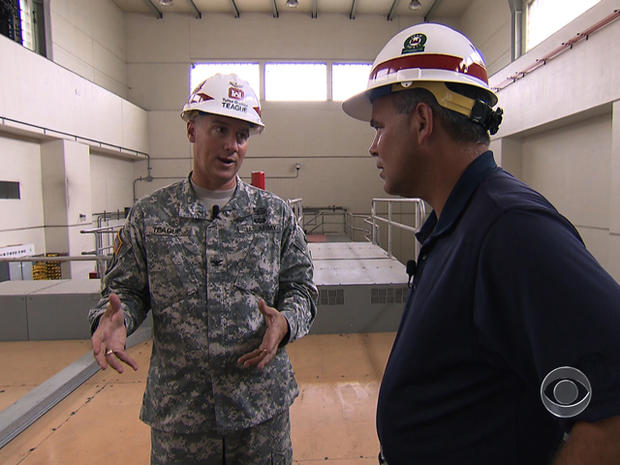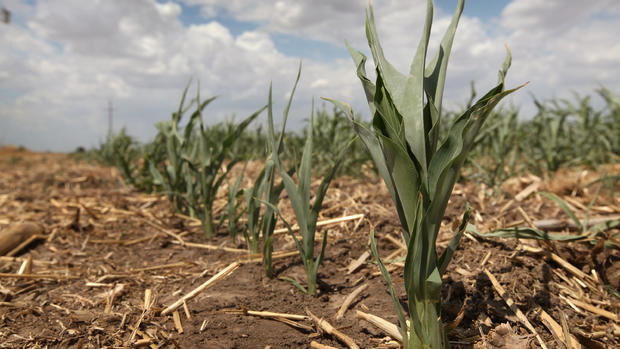Okla. water needs squeezed by historic drought
(CBS News) TULSA, Okla. - The government said Thursday the drought is spreading, and there's been no break for places where the drought is worse, which includes Oklahoma. And in the Sooner State, relief can't come soon enough.
When the Arkansas River bends south at Tulsa, it stops running and starts limping. From the air, you can plainly see the sandbars that have emerged. The river is down 97 percent.
The landscape here in eastern Oklahoma is different than, say, the flat plains of western Kansas. Here, the water of the Arkansas River can be collected and managed in a series of five dams. In a normal year, there's enough to go around. But this is no normal year.
Jim Axelrods's reports on drought of 2012
Video: Drought dries up 200 miles of Arkansas River
Video: Rain brings hope for drought-suffering farmers
Video: Colo. using 19th century claims to decide water shortage disputes
"The question is," said Col. Michael Teague, "Do you want the water in your sink? Do you want the water for your AC? Do you want the water for the fish? Do you want the water up here in the lake to put your boat on?"
Teague is brokering all those needs in eastern Oklahoma as he manages the region's lakes and dams for the Army Corps of Engineers.
"It is absolutely about balancing competing needs," said Teague, who agreed that it's a juggling act.
One of his biggest priorities is storing enough water in his lakes to release to the river when falling water levels threaten barge traffic carrying grain across the farm belt.
But more water behind the dams means less water in the river to power the turbines generating electricity for eight million people. Turbines along the Arkansas are now producing 80 percent less electricity.
"We don't have the water this summer," said Teague. "We didn't have the water last summer either because of the drought. We try to maximize everything we can out of every drop of water we got."
As the river dries up, so will Teague's options for figuring out what to do with the water that's left. He hopes that people do not get less cooperative with each other as the calendar winds down without seeing recharged water sources.
"By the end of this year," he said, "if we don't get some rain to recharge these lakes we're going to be in a real hurt."
In this part of Oklahoma, many will tell you they're already there.


